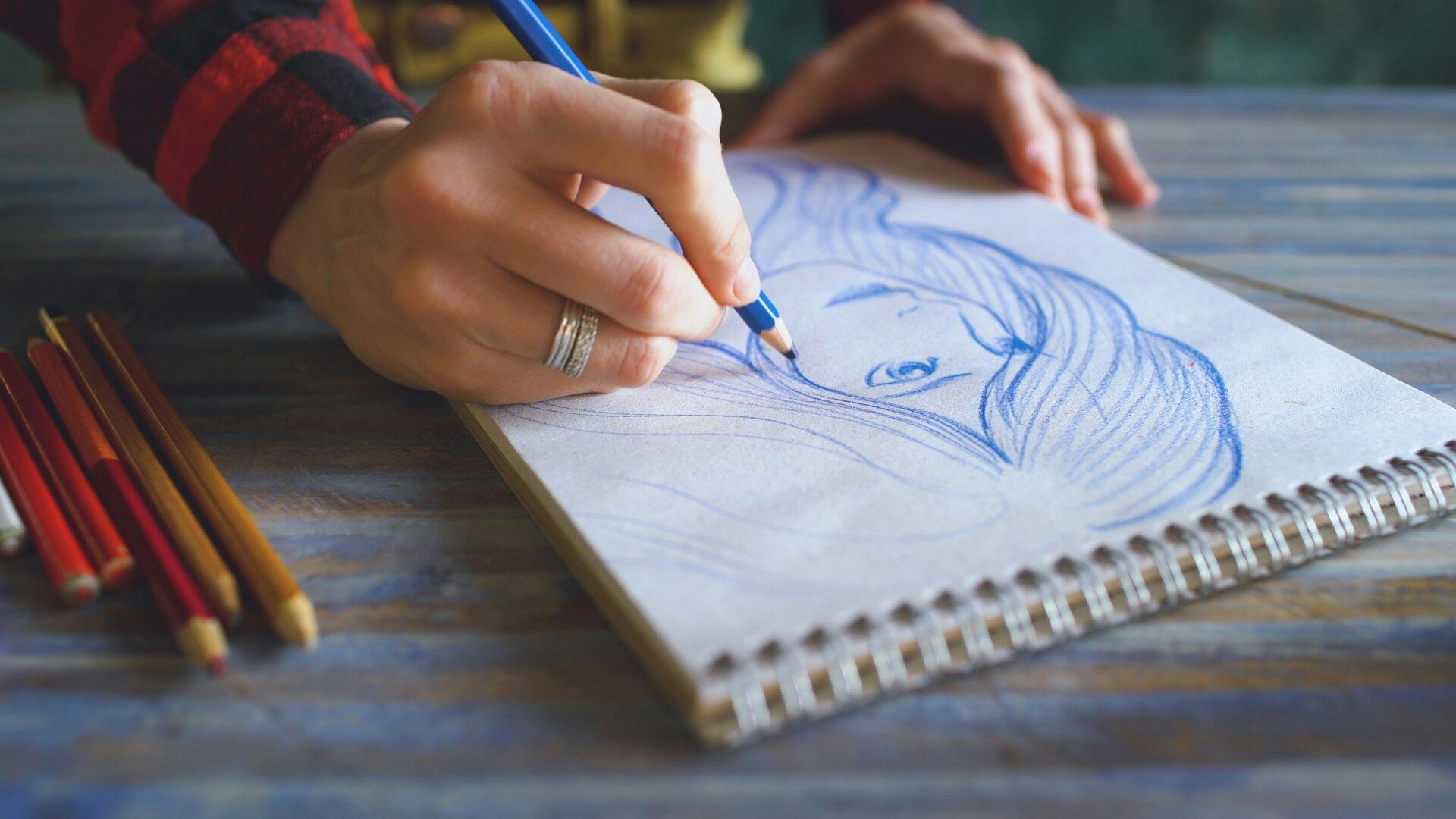Hi, this is Ray.
Let’s start with a confession: I used to think talent was everything.
When I saw a kid play piano like a miniature Beethoven or a friend pick up a new language in two weeks, I’d think, “Wow, they’re gifted.” Then I’d look at myself spending 30 minutes trying to tune a guitar string and wonder if my “gift” got lost in shipping.
But here’s the truth science keeps shouting at us: talent matters less than you think
The people we call “naturally gifted” usually aren’t born with special brains. They’ve just practiced in the right way, for a long time, with the right kind of feedback.
The rest of us can do the same, if we understand how the brain actually learns.
The Birth of a Myth
Humans love stories of prodigies. Mozart composing symphonies at five. Serena Williams swinging a racket before kindergarten. These tales make talent look magical, as if success is destiny rather than effort.
But even Mozart practiced, a lot. His father was a professional music teacher who started training him at age three, for hours a day. By the time Mozart wrote his first masterpiece, he had already logged over ten thousand hours of focused practice.
As psychologist Anders Ericsson explained in his research on deliberate practice, elite performers in any field share one common factor: long, structured, feedback-driven practice.
In other words, they weren’t born different. They became different through years of effort that physically rewired their brains.
Neuroplasticity: The Brain’s Secret Weapon
Your brain isn’t static. It changes shape, density, and wiring based on what you do repeatedly. This is called neuroplasticity, the ability of neurons to form and strengthen new connections.
When you learn something new, like a language or a dance move, your brain literally grows new synapses between neurons. Each repetition makes that connection stronger and faster.
A study from University College London found that the brains of taxi drivers who memorized complex city maps had larger hippocampi, the area responsible for spatial memory. Another study on juggling showed that just six weeks of practice caused measurable changes in the brain’s visual and motor regions.
So if you’ve ever said, “I’m just not a math person” or “languages aren’t my thing,” neuroscience disagrees. The more you practice, the more your brain adapts.
Choose the Right AI Tools
With thousands of AI tools available, how do you know which ones are worth your money? Subscribe to Mindstream and get our expert guide comparing 40+ popular AI tools. Discover which free options rival paid versions and when upgrading is essential. Stop overspending on tools you don't need and find the perfect AI stack for your workflow.
The Real Difference Between Experts and Amateurs
If practice is the key, why don’t we all become masters? The answer lies in how we practice.
Ericsson’s research introduced the idea of deliberate practice, targeted, uncomfortable, and feedback-rich effort. It’s the opposite of mindless repetition.
Deliberate practice looks like this:
Focus on a specific weakness, not what you’re already good at.
Work at the edge of your current ability.
Get feedback quickly, correct mistakes, and try again.
Repeat until the mistake becomes automatic correction.
This type of practice forces your brain to form new neural pathways rather than just strengthening old ones.
A 2009 study published in Psychological Science found that musicians who engaged in deliberate, focused practice developed faster improvements in timing and accuracy than those who practiced casually for the same number of hours.
It’s not about how much you practice. It’s about how precisely you do it.
The Myth of the “Natural”
We love calling people “naturals.” It makes success seem easier to explain and easier to excuse when we don’t reach it ourselves.
But even the so-called naturals had thousands of hours of hidden training. Michael Jordan was cut from his high school basketball team. Picasso spent years copying other artists before developing his style.
In fact, early “talent” can even backfire. A study from Michigan State University found that students labeled as “gifted” were more likely to give up when faced with hard tasks, because they saw effort as a sign of weakness.
When you believe success should be easy, you stop trying when it’s not.
True learners fall in love with difficulty. They know each struggle is literally their brain growing stronger.
How to Train Your Brain Like an Expert
You don’t need ten thousand hours or a private coach. You just need to practice the way the brain actually learns.
Here’s how to do it.
1. Focus on Feedback, Not Time
Stop counting hours. Start counting adjustments.
A study from the University of Ottawa found that people who received detailed feedback improved three times faster than those who practiced the same amount without feedback.
Ask: “What can I improve right now?” not “How long have I studied?”
2. Break Skills into Subskills
Your brain learns best in small, clear chunks.
When you isolate a subskill, like pronunciation in language learning or rhythm in music, you can repeat and refine it until it becomes automatic.
This process, called chunking, helps your brain compress information into efficient units that can be combined later.
3. Train at the Edge of Ability
If you’re too comfortable, you’re not learning. But if you’re overwhelmed, your brain shuts down.
The sweet spot is where you fail about 15 to 20 percent of the time. Researchers at Princeton University call this the optimal challenge zone.
That little bit of struggle keeps dopamine flowing and neuroplasticity active.
4. Rest to Remember
Here’s the part everyone skips: rest.
Learning happens during recovery, not just activity. During sleep, your brain consolidates memories, strengthens neural pathways, and prunes away noise.
A Harvard study on memory consolidation found that people who slept after learning retained 40 percent more information than those who stayed awake.
Practice plus rest equals mastery.
5. Keep Your Identity Flexible
Never say, “I’m not the kind of person who can do that.” The moment you define yourself by your limits, you stop your brain from changing.
Neuroplasticity doesn’t care about your age or past experience. As long as you keep practicing, your brain keeps adapting.
The Talent Trap in Modern Learning
Modern culture loves the “genius narrative.” We celebrate overnight success and viral prodigies, but not the years of invisible grind behind them.
This narrative kills motivation. When you think others succeed because they were “born that way,” your brain stops believing effort matters.
But the data says otherwise. A meta-analysis in Psychological Bulletin showed that deliberate practice accounted for as much as 25 percent of performance differences across domains, far more than raw ability or IQ.
Talent gives you a head start. Practice decides whether you finish the race.
My Experiment: The 30-Day “Untalented” Challenge
A few years ago, I decided to learn something I had zero talent for: drawing.
My first sketches looked like crime scene evidence. But I committed to practicing for 30 minutes a day using deliberate practice, focusing on one skill at a time, getting feedback, and resting between sessions.
By day 15, my lines were smoother. By day 30, I could draw a recognizable face. It still wasn’t art, but it was proof that talent is overrated and effort is underrated.
Now I apply the same approach to everything: business, writing, even sword fighting. Talent is the spark. Practice is the fire.
The Bigger Lesson: Talent Starts Where Practice Begins
When someone calls you talented, take it as a compliment to your persistence, not your DNA.
Your brain is plastic. Your limits are negotiable. Every time you challenge yourself, you’re sculpting new potential into existence.
So stop waiting to be “naturally good” at something. The only thing truly natural about learning is that you can always get better.
Stay curious,
Ray



